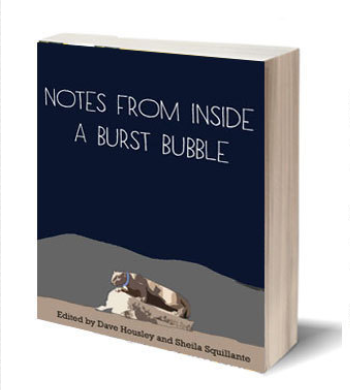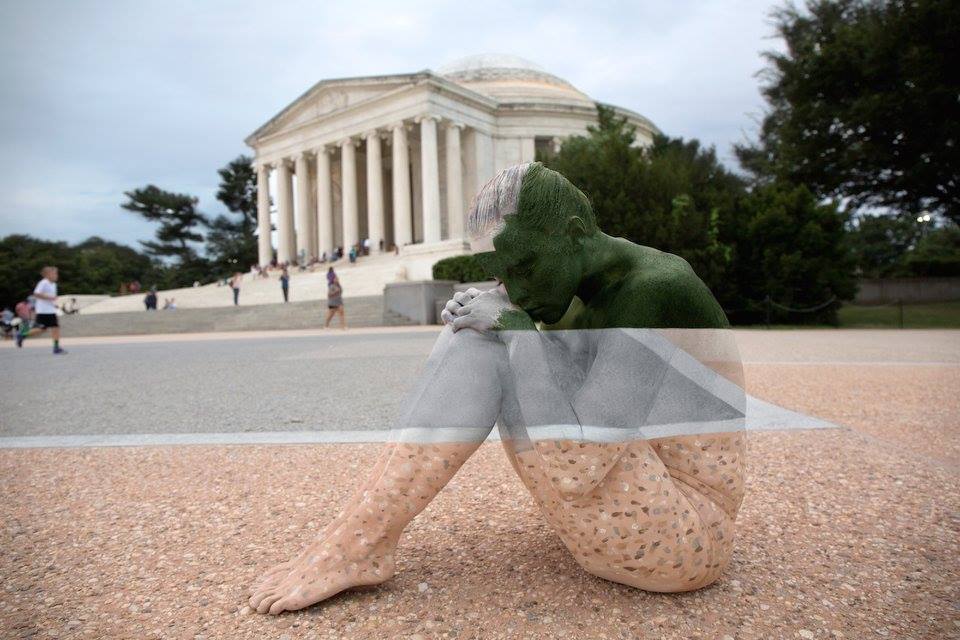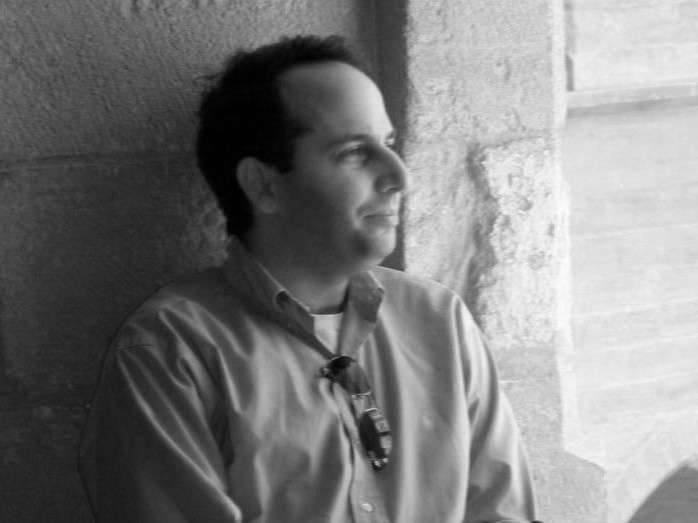 Dave Housley is the author of Ryan Seacrest is Famous and one of the founders of Barrelhouse magazine. While the Sandusky scandal unraveled, Dave, a Penn State employee, wrote what I thought was the most thoughtful and insightful pieces of writing I’d read about what it was like to be part of the Penn State community. Now, he and his coeditor Sheila Squillante, a senior lecturer in the Penn State English Department and a graduate of Penn State’s MFA program, are compiling their own essays with the work of others into a new book entitled Notes From Inside a Burst Bubble: Penn Staters on the Penn State Scandal. I asked Dave some questions about the book, and here’s what he said:
Dave Housley is the author of Ryan Seacrest is Famous and one of the founders of Barrelhouse magazine. While the Sandusky scandal unraveled, Dave, a Penn State employee, wrote what I thought was the most thoughtful and insightful pieces of writing I’d read about what it was like to be part of the Penn State community. Now, he and his coeditor Sheila Squillante, a senior lecturer in the Penn State English Department and a graduate of Penn State’s MFA program, are compiling their own essays with the work of others into a new book entitled Notes From Inside a Burst Bubble: Penn Staters on the Penn State Scandal. I asked Dave some questions about the book, and here’s what he said:
What will we see inside this book?
It’s a collection of writing by “inside Penn State” people – faculty, staff, alumni, students, and people who live here in State College – about the Sandusky scandal and what it was like to be a part of the community as the whole thing unfolded.
It’s not a football book or a Joe Paterno book or even a Sandusky book – I think it’s a book about identity. In my essay that’s included in the book, I wrote: “We are Penn State. So the question is this: are we who we thought we were?” You won’t see excuses or explanations. Nobody is defending what happened or the people involved or even the school itself.
Why did you decide to put this book together?
The original impetus was that there was so much great, heartbreaking, honest writing happening. My friend Sheila Squillante, who works at Penn State as well, and I thought that it would be a good idea to pull all of this stuff together in one place. We had each
written something, and the social media was going crazy with people sharing other essays or blog posts, commenting and building on each other, and we thought, there’s a whole conversation happening here. The idea of the book was to document that conversation.
There are lots of people who lump the whole of Penn State into the scandal, who think that we’re all brainwashed, that we were only worried about the football coach and not about what happened to those kids. I don’t know if this book can change anybody’s mind about that, but I think if you read it, you’ll at least have a sense for how heartbreaking it was here, and how profoundly angry, sad, and affected a lot of people in this community were at the time and continue to be.

What is your connection to Penn State?
I was born here and my wife Lori and I both grew up in Selinsgrove, Pennsylvania. I went to college elsewhere and then we moved to DC for 17 years. Then, four years ago, when my son was two, we started feeling like maybe there was a better place for us to be. We started looking around and fell in love with State College. A year or so after moving, I got a job at Penn State doing web strategy for Penn State Outreach.
To those of us outside Happy Valley, can you briefly explain what the community is like?
It’s a wonderful community. The school system is amazing. It’s very safe. There’s a lot going on – theater, music, readings, big time sports, and that kind of thing – because of the University. There are decent restaurants. My commute takes about eight minutes in the car, half an hour on my bike. Other than when there’s a home football game, traffic doesn’t really exist here.
The town is also inextricably connected to the university. The school is the largest employer. Lots of people have lived here for generations, or they went to Penn State and moved back here, or they’re students who are maybe the second, third, fourth generation of Penn Staters.
What is your favorite Penn State football memory?
Probably the last football game this year. No matter what you think about Penn State and the role of the football program in what happened here, I think you had to be pulling for the kids who decided to stay here this year. They could have gone elsewhere, every single one of them, but they made a decision to stay and try to rebuild under the worst of circumstances. They wound up having a good year and won their final game at home in overtime. It was a nice way for that to end, and it was a nice story all year long, and one that I think isn’t as complicated. Those kids clearly had nothing to do with what happened years ago.
You have contributors who have written for national publications as well as undergrads publishing for the first time. How do the divergent voices add to the quality of the product?
I think it really adds a depth to the whole thing. We have people like Michael Weinreb writing in Grantland, or Michael Berube in the New York Times, and their voices are mixed in with some freshmen from Sheila’s composition class.
Those kids were already being asked to consider what “We are Penn State” means as a part of this class, even before the scandal, so their thoughts are poignant, and visceral. There are also several essays from faculty members, about what it was like to teach through the scandal. There’s an article about teaching The Kite Runner, for instance, which is really fascinating.
I should also say that there’s no cohesive viewpoint presented in the pieces. There are people I don’t necessarily agree with, or whose ideas don’t represent how I feel or felt. What we were looking for was the range of experiences and emotions, and I think the book does a good job of conveying that range.
Anything else you want to add?
We don’t expect that this book will solve anything. It’s not a band-aid. There’s nothing solvable here, no quick fix for what happened. The authors’ are very well aware that their words aren’t going to heal anybody. In most cases, they’re working through a sense of helplessness, an inability to fix what went wrong and uncertainty about what could possibly happen next.
Sheila and I aren’t taking any money, and the writers aren’t being paid. After the cost of printing and reprint rights, we’ll donate any and all profits to the Rape, Abuse and Incest National Network (RAINN), the nation’s largest anti-sexual violence organization.
Also, Dave needs a little cash to get this project going. You can preorder a book and help out.



